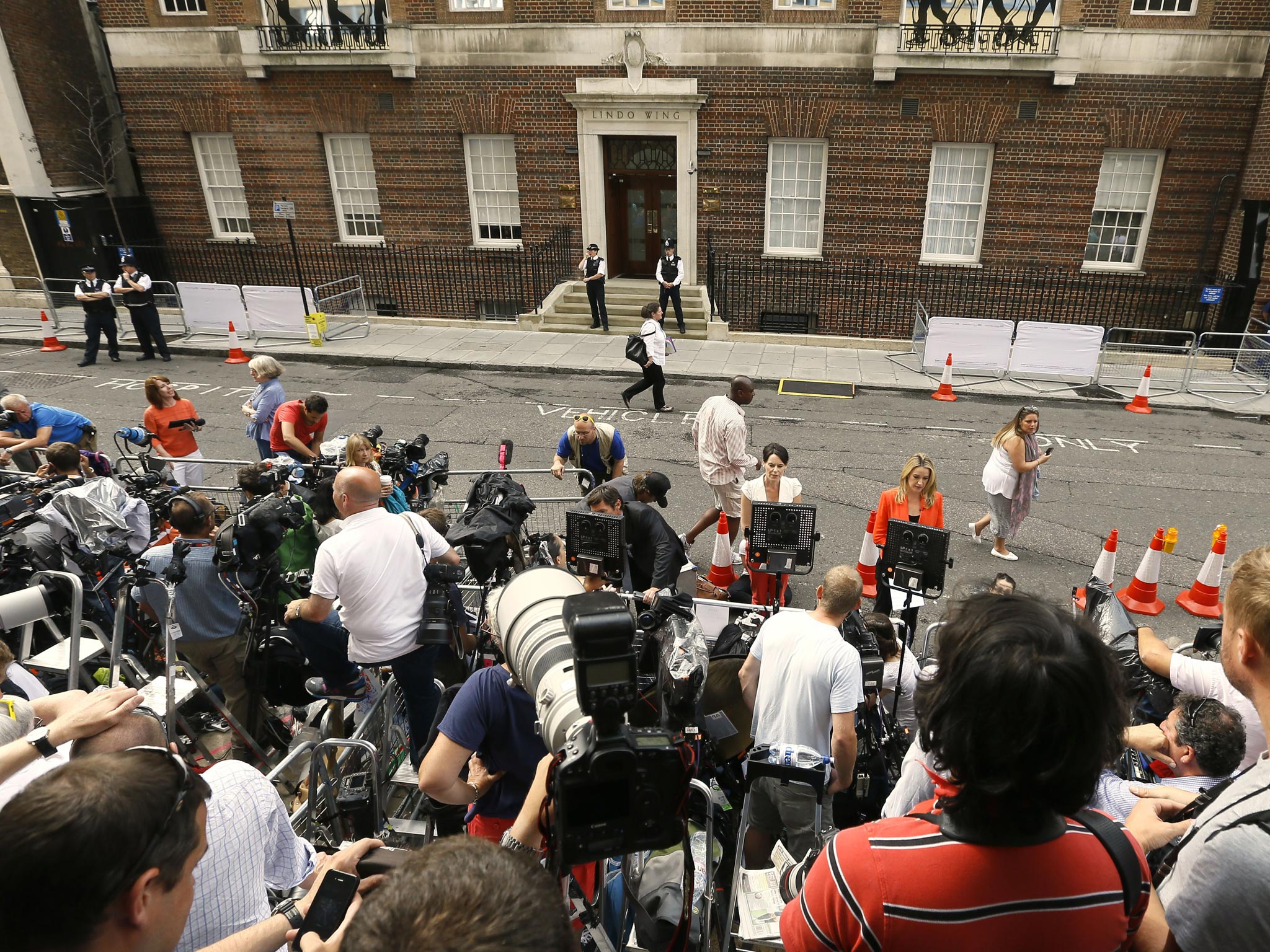Keeping news of the Royal baby private - even for four hours - was a superb decision. We should all cherish ‘unplugged’ moments
You may be diluting the value of an experience by sharing it online

Your support helps us to tell the story
From reproductive rights to climate change to Big Tech, The Independent is on the ground when the story is developing. Whether it's investigating the financials of Elon Musk's pro-Trump PAC or producing our latest documentary, 'The A Word', which shines a light on the American women fighting for reproductive rights, we know how important it is to parse out the facts from the messaging.
At such a critical moment in US history, we need reporters on the ground. Your donation allows us to keep sending journalists to speak to both sides of the story.
The Independent is trusted by Americans across the entire political spectrum. And unlike many other quality news outlets, we choose not to lock Americans out of our reporting and analysis with paywalls. We believe quality journalism should be available to everyone, paid for by those who can afford it.
Your support makes all the difference.One of the most valuable commodities in our society is privacy. The first four hours that the Duke & Duchess enjoyed with their new son, whilst only they knew, will have been extremely precious to them. They will be thankful that those in the room remained “unplugged.” Pippa and Harry weren’t live-tweeting, putting the cutting of the umbilical cord on Vine, and instagramming the baby’s feet. You don’t have to be a member of the Royal Family to value privacy - it is becoming increasingly difficult for any of us to retain it.
If you attend a party, chances are at least one person is effectively leaning out the window every few minutes to shout indiscreetly about what is happening inside, except it isn’t just to passers-by, but on Twitter to anyone in the world who cares to listen. We can’t always have yearned to work in PR, but the proliferation of camera phones has now turned us into people who will rave about a restaurant by uploading pictures of the food. We weren’t all citizen journalists and commentators until the technology arrived whereby we could promulgate our rants instantly and globally.
The summer months are an over-sharing spree. From semi-naked holiday snaps to the 3000 shot wedding albums, many people seem to believe that they need to live public, photo-filtered lives. At least half of those photos contain other people taking photos, because of course there’s a competition to see who best captures some aspect of the event. If we’re talking holidays, consensus seems to be that this photo should be either sunset, just a set of legs on a beach, or a blurry photo of a cocktail by a pool. If this is a wedding then pictures of the empty, but ornately arranged dining hall, the bride’s yet-to-be-worn shoes on a windowsill, or a cutely personalised name place card are all well represented.
In reaction to this has been a movement towards “unplugged” events at which the sharing of information online and even sometimes the use of technology is forbidden. Some wedding couples have gone so far as to employ staff to remove mobile phones from guests. If you had wanted to invite all of someone’s Facebook friends or Twitter followers to your child’s christening, the argument goes, you might have done so.
Removing phones from your friends and relatives might sound diva-ish, but if people are treating their guests like paparazzi, it may be because their guests are acting that way. We’ve all learned how to use technology which allows us to upload sound, text and video instantly, but we haven’t learned, or even written the basic social rules of how the technology should be used.
An obvious presumption for the use of social media should be that if you are attending a private invitation-only event, you shouldn’t share details of that event with the wider world. Advertising the fact that you were invited might cause headaches for the organiser often faced with the dilemma of who to invite. Another obvious presumption should be that unless encouraged to do so, sharing photographs of the event is also an intrusion into what is supposed to be a private function.
Some people will always want to live their lives on display, letting you know how they’re feeling, where they are, and what they’re up to on a constant basis. Internet companies rely upon this churn of information to feed consumption and revenue. Somewhere along the way this turned many of us into self-facilitating media nodes with little or no awareness of privacy, but it is privacy which gives meaning to our closest friendships, and importance to our most important personal events. CS Lewis was speaking ahead of his time when he said that “we live, in fact, in a world starved for solitude, silence, and private: and therefore starved for meditation and true friendship.”
Next time you’re invited to a Bat Mitzvah, birthday party, or even just a holiday with friends and loved ones, consider going “unplugged”. Take photos for your own albums, but rather than increasing your enjoyment by sharing the details online, you may be diluting the value of the experience. Some of our most precious moments should also remain the most private.
Join our commenting forum
Join thought-provoking conversations, follow other Independent readers and see their replies
Comments